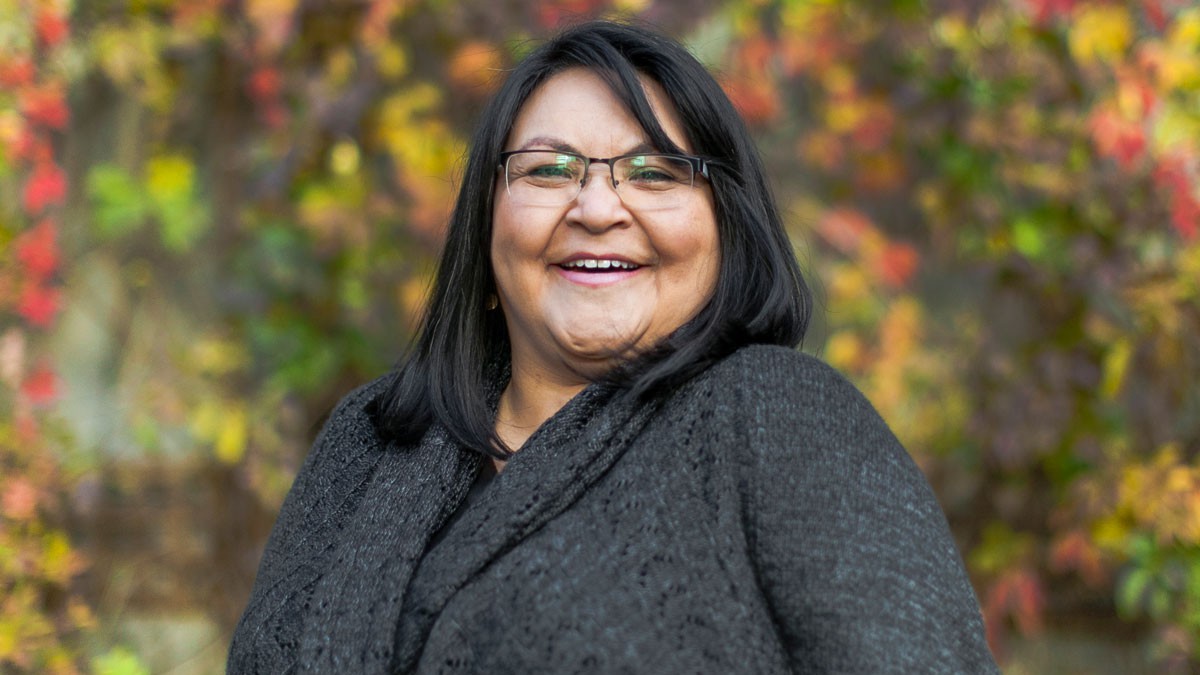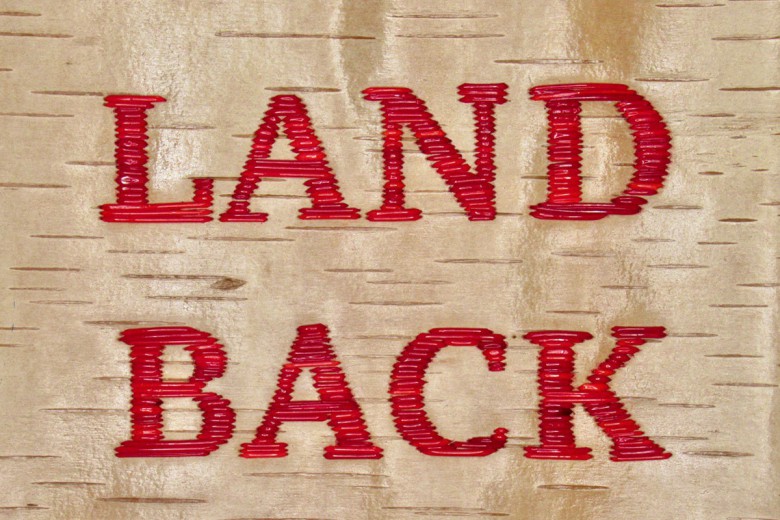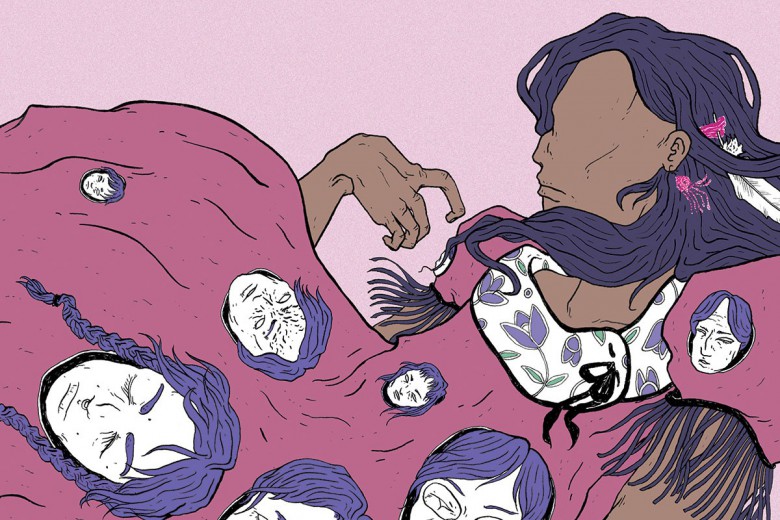Eden Robinson is the Haisla/Heiltsuk author of Monkey Beach and the Trickster trilogy. Hobbies: Shopping for the Apocalypse, using vocabulary as a weapon, nominating cousins to council while they’re out of town, chair yoga, looking up possible diseases or syndromes on the interwebs, perfecting gluten-free bannock, and playing Mah-jong. Be warned, she writes novels and tends to be cranky when interrupted.
How does your relationship to land affect your writing?
My dad was a hunter, trapper, and fisherman. He loved getting outside. I was more of a housecat, like my mom, but Dad would drag all of us kids with him and tell us stories about the territories and people that used to live there or hunt there or fish there. I didn’t realize until much later how much love of the land he was passing on to me. Monkey Beach, for instance, was Awamusdis in our language, the Beach of Plenty. It has five species of clams and two species of cockles. It was a public trust all Haisla could harvest responsibly from, so it has so many stories attached to it. I desperately wanted to write it into fiction and Dad was tickled that I did, but disappointed that I didn’t have more sasquatches in it.
What do you see as the role of independent journalism in covering Indigenous movements?
Coverage of Indigenous movements is usually limited to crisis coverage. That crisis is usually a resource extraction issue that is mainly explored from the point of view of jobs and economic benefit, with Indigenous Peoples framed as “getting in the way.”
For instance, if you think back to the Wet'suwet'en blockades and how they were covered, most of the news painted Indigenous Peoples as dangerous anarchists who were harming Canada's economy. But once the federal government came to the table, things were settled rather quickly. And to be clear, it was always the federal and provincial governments' responsibility to address the Wet'suwet'en Hereditary Chief's concerns. Instead, both levels of government abandoned their responsibilities and sent in RCMP rather than listening and negotiating as they are legally obligated to do. The support of Indigenous Peoples across Canada was instrumental in bringing the government to the table – it also signals a larger frustration.
Independent journalism is absolutely vital to showing the full context and highlighting people at the grassroots level who’ve been working so tirelessly and thanklessly for their communities.
Many of the promises made to Indigenous Peoples by federal and provincial governments are hollow. They make these promises to appease the conscience of non-Indigenous Canadians and to shut down the conversation, but without any intention of real change. With the COVID-19 pandemic and its economic fallout, my worry is that Indigenous rights will be literally bulldozed. I worry about the Trans Mountain pipeline becoming a flashpoint because the pattern is to send in RCMP to crush the protest and negotiate later, which is so traumatizing and disrespectful to our communities.
Independent journalism is absolutely vital to showing the full context and highlighting people at the grassroots level who’ve been working so tirelessly and thanklessly for their communities. Briarpatch’s coverage of the Wet’suwet’en crisis shed so much light on the complexities and personalities involved in these stories.
Why did you become a Briarpatch sustainer?
Briarpatch published some of the young Indigenous writers I was following. At first, I bought the magazine to support them, but then realized how many underserved communities were getting a platform from your publication and knew that I had to support you as much as I could.
Briarpatch is a non-profit, reader-supported magazine that thrives thanks to the individual contributions of readers like you. Sustainers are the backbone of Briarpatch and the reason we’re not beholden to governments or corporate advertisers. By authorizing a small automatic donation each month, you’ll play a crucial role in supporting our core operations so that we can focus our energies on more important things – like publishing fiercely independent journalism and critical commentary. All Sustainers receive an annual newsletter, an automatically renewing subscription, and a permanent vacation from renewal notices.
To become a Sustainer like Eden, go to briarpatchmagazine.com/donate.




_780_520_90_s_c1_c_b.jpg)


